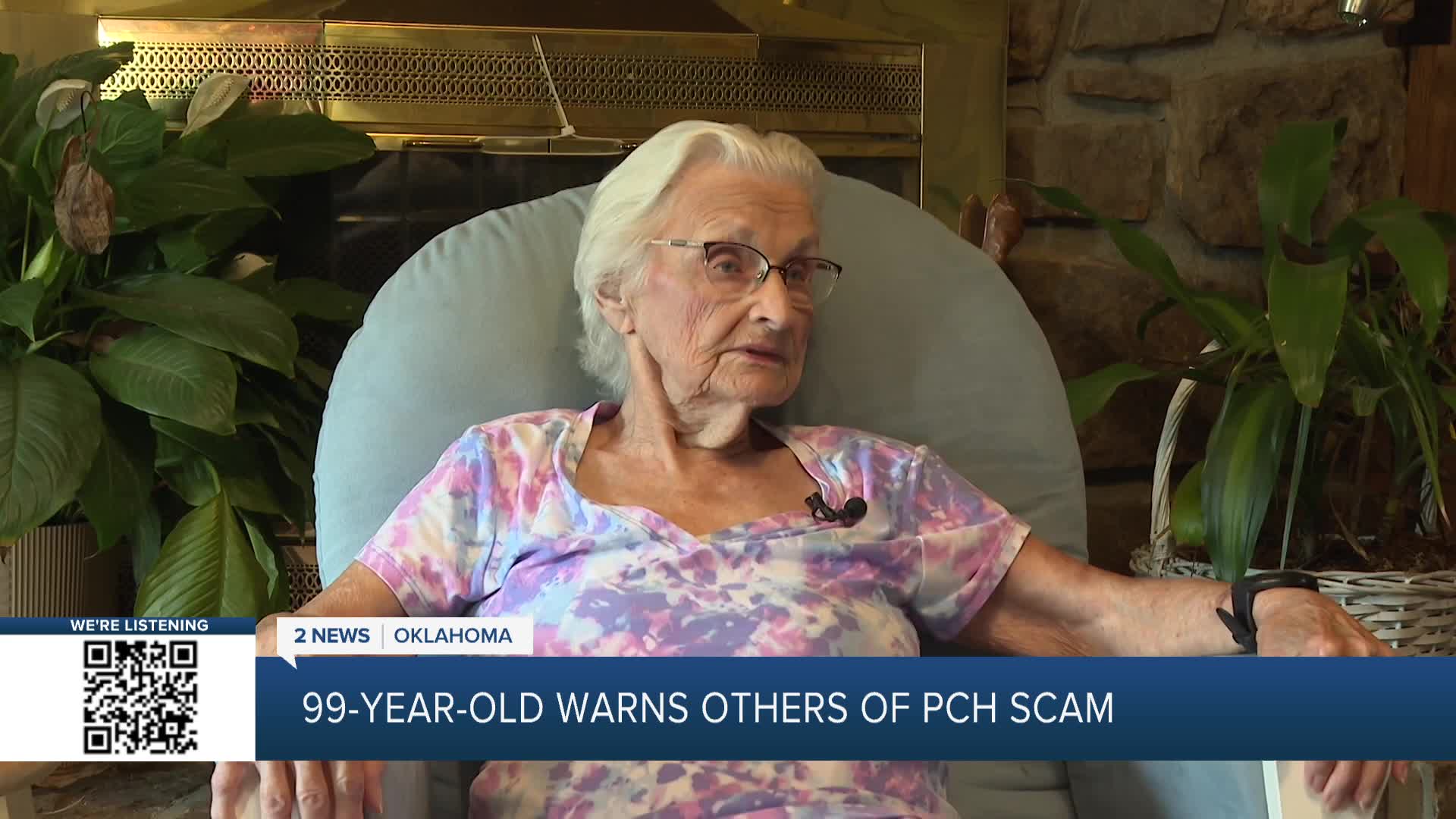PAWHUSKA, Okla. — A 99-year-old Pawhuska woman is speaking out after scammers impersonating Publishers Clearing House called her daily for more than a month, demanding personal financial information and $1,000 to "deliver her prize."
HOW THE SCAM WORKS:
Julia Provance said the calls began with claims she won an expensive car and thousands of dollars.
"I get this call that I'd won all this money, you know. So I said, 'But what do I have to do?'" Provance told 2 News.
She explained that the callers asked for payment for her prize and asked increasingly personal questions about her bank account, credit cards, and financial history. They even asked if she managed her own money."
"I said, that's none of your business... I'm not giving money to anybody," the sharp-witted 99-year-old responded.

DAILY HARASSMENT
She told 2 News the scammers called every single day with the same pitch. Eventually, they even claimed the government required them to demand payment.
"All you have to do is give them $1000 for delivering your prize," Provance said they told her.
WHAT YOU NEED TO KNOW
Chris Irving, Vice President for Consumer and Legal Affairs at Publishers Clearing House, said these imposter scams are becoming increasingly common.
"If you win a prize at Publishers Clearing House, it is free. You never pay any amount," Irving explained.
He told 2 News the real PCH never contacts winners ahead of delivering a prize and never asks for money to receive one. He added it does not collect taxes on prizes or require payments by having a recipient buy gift cards, then provide the information on the card to someone over the phone.
If you do that, all it does is give the scammer instant access to drain the money off the card, leaving you with nothing.
RED FLAGS:
- Demands for upfront payment or "delivery fees"
- Requests for banking or credit card information
- Claims that the government requires payment
- Pressure to keep the "win" confidential
- Demands for payments using gift cards
WHY SHE SPOKE UP:
Provance contacted 2 News in hopes of protecting others from falling victim to this common scheme.
"I didn't want some other people, especially older people, to get scammed out of their money," she said.
WHAT TO DO IF YOU'RE TARGETED:
- Hang up immediately - don't engage with the caller or answer any personal or financial questions
- Report the call(s) to local police
- File a complaint at PCH.com
- File a report with ReportFraud.ftc.gov
- Never send money, buy and read off gift card information, or provide personal financial information like account numbers
Irving's advice is simple: "Don't send any money. Don't respond."
THE BOTTOM LINE:
If you have to pay to claim a prize, it's not a legitimate prize. Real sweepstakes winners never pay taxes or fees upfront.
This story was reported on-air by a journalist and has been converted to this platform with the assistance of AI. Our editorial team verifies all reporting on all platforms for fairness and accuracy.
Stay in touch with us anytime, anywhere --
- Download our free app for Apple, Android and Kindle devices.
- Sign up for daily newsletters emailed to you
- Like us on Facebook
- Follow us on Instagram
- Watch LIVE 24/7 on YouTube





